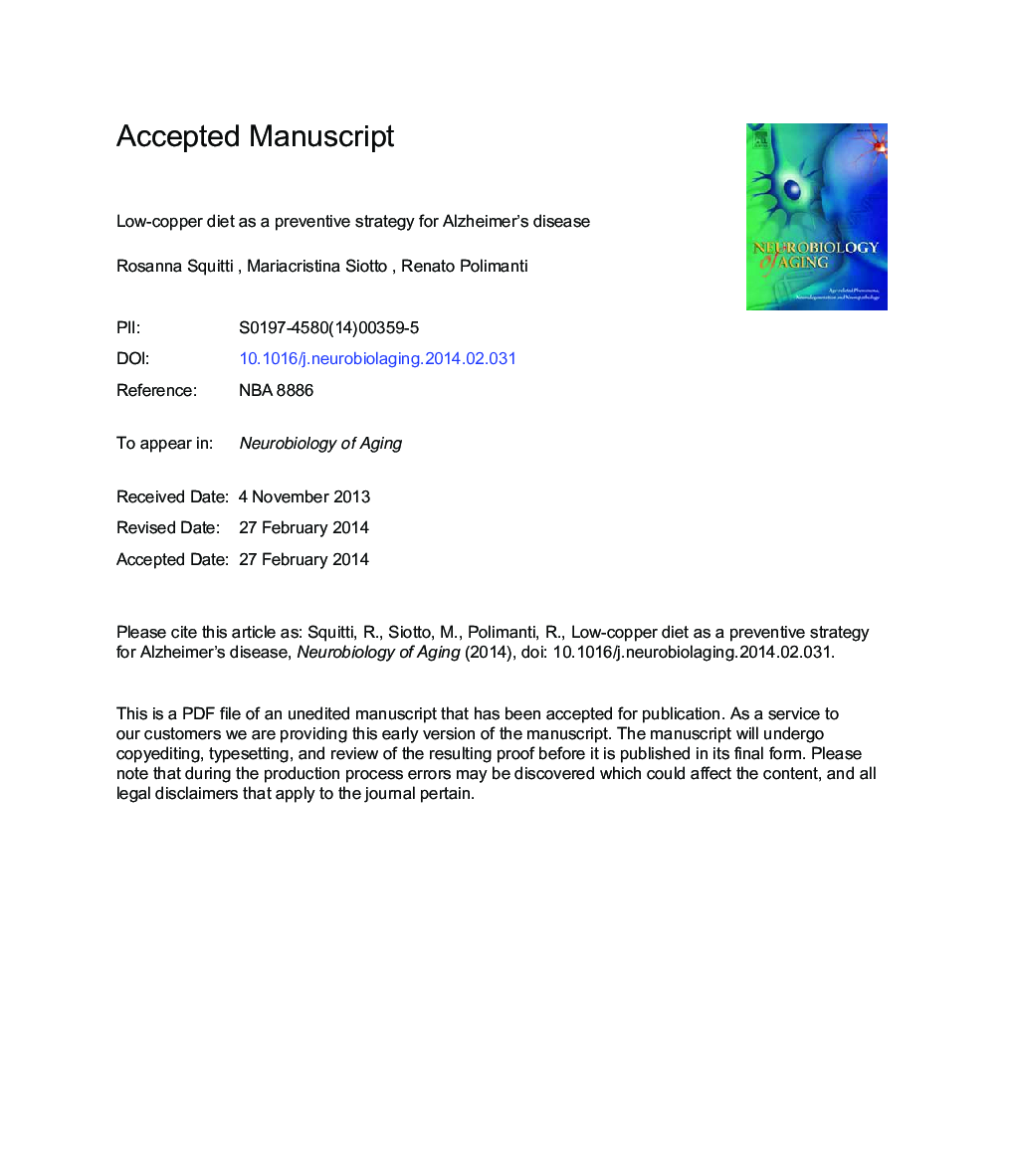| Article ID | Journal | Published Year | Pages | File Type |
|---|---|---|---|---|
| 6806608 | Neurobiology of Aging | 2014 | 39 Pages |
Abstract
Copper is an essential element, and either a copper deficiency or excess can be life threatening. Recent studies have indicated that alteration of copper metabolism is one of the pathogenetic mechanisms of Alzheimer's disease (AD). In light of these findings, many researchers have proposed preventive strategies to reduce AD risk. Because the general population comes in contact with copper mainly through dietary intake, that is, food 75% and drinking water 25%, a low-copper diet can reduce the risk of AD in individuals with an altered copper metabolism. We suggest that a diet-gene interplay is at the basis of the “copper phenotype” of sporadic AD. Herein, we describe the pathways regulating copper homeostasis, the adverse sequelae related to its derangements, the pathogenic mechanism of the AD copper phenotype, indications for a low-copper diet, and future perspectives to improve this preventive strategy.
Related Topics
Life Sciences
Biochemistry, Genetics and Molecular Biology
Ageing
Authors
Rosanna Squitti, Mariacristina Siotto, Renato Polimanti,
